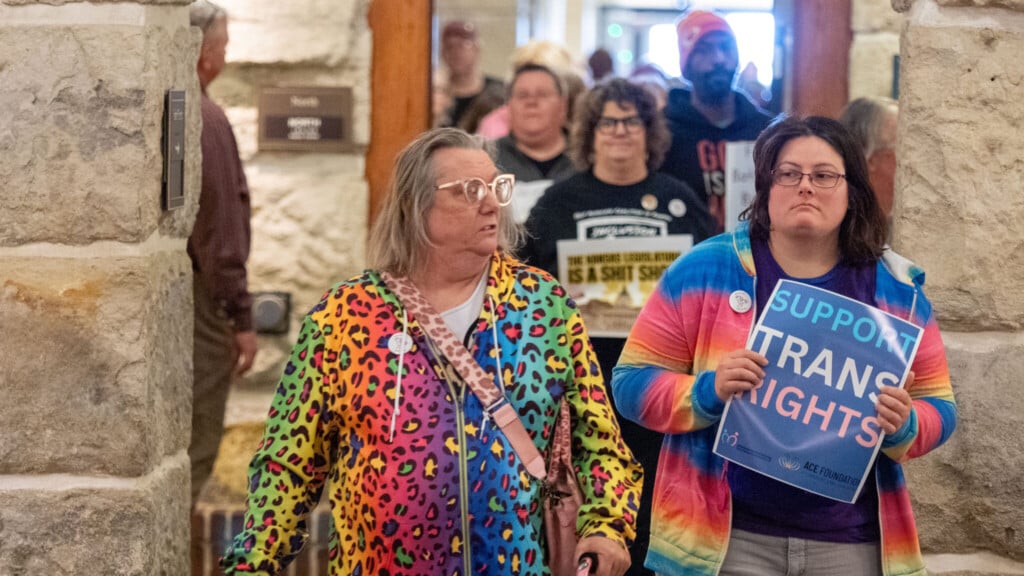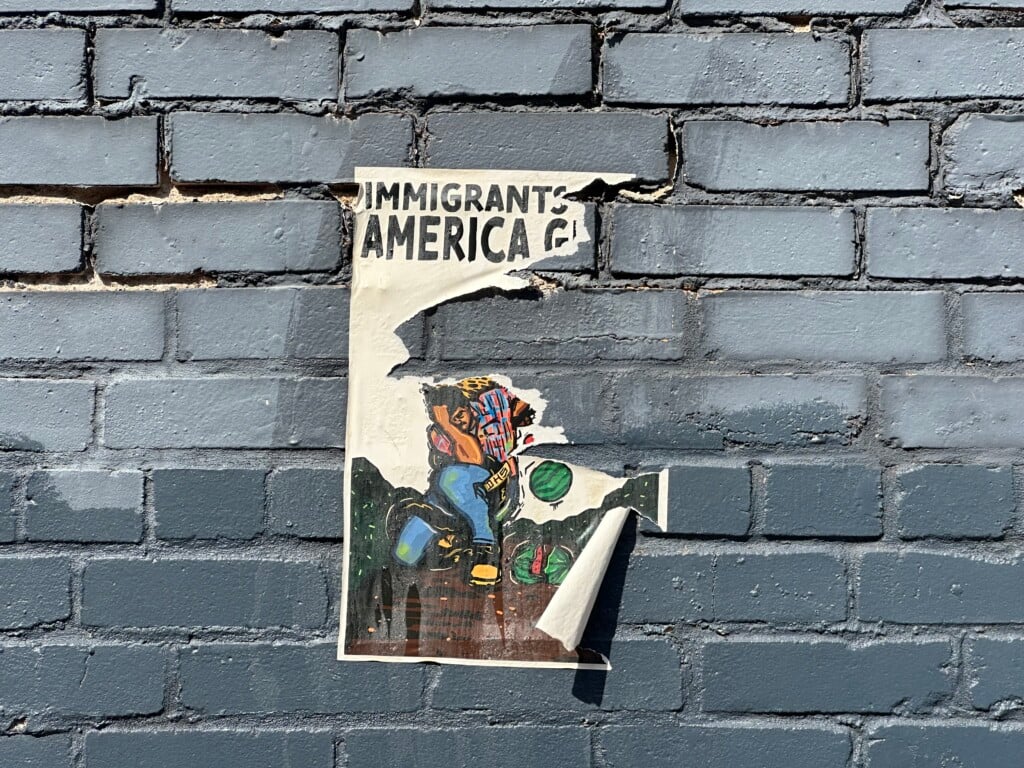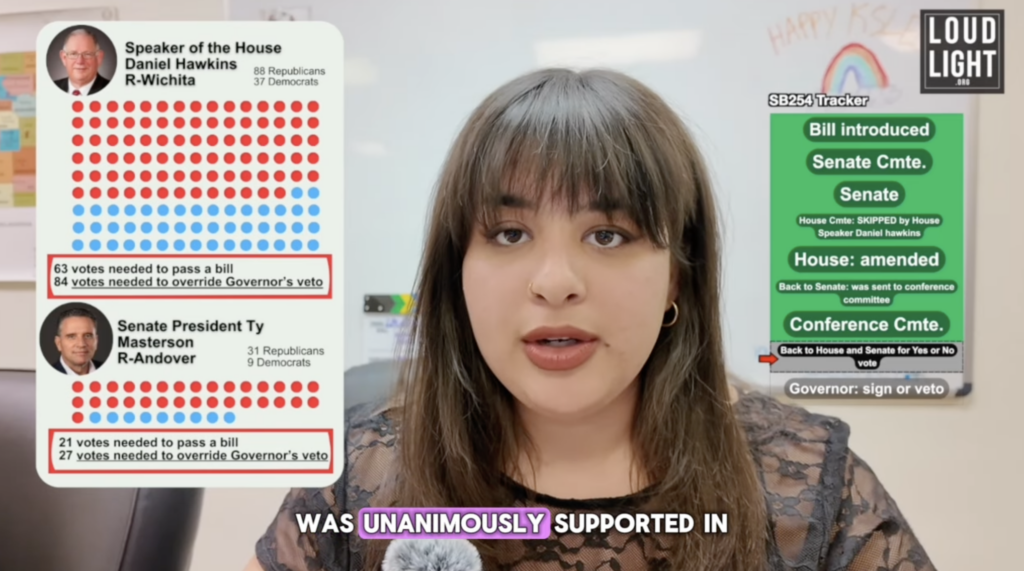Missouri governor calls lawmakers back to Capitol to gerrymander congressional map
The special legislative session will also include a proposal to change the initiative petition process in a way that would mean as few as 23% of voters could defeat a statewide ballot measure.

Missouri Gov. Mike Kehoe is convening a special legislative session to focus on gerrymandering and initiative petition changes (Annelise Hanshaw/Missouri Independent)
Missouri lawmakers will return to the Capitol next week to gerrymander the state’s congressional map in the hopes of creating a new Republican seat.
They will also debate putting a constitutional amendment on the 2026 ballot that would make it harder for voters to change the constitution through the initiative petition process.
Both proposals were included in the special legislative session agenda crafted by Gov. Mike Kehoe and announced on Friday. The move has been expected for weeks, with Missouri Republicans facing pressure from President Donald Trump to redraw U.S. House districts so the GOP can win more seats in next year’s midterm elections.
“This is about clarity for voters and ownership of our future, and I hope the legislature will work together to pass our Missouri First Map and critically needed IP reform,” Kehoe said in a statement Friday afternoon.
Missouri has eight congressional districts, and Democrats hold two. The legislature is expected to split the 5th District, which is mainly in Kansas City, by adding Republican voters in sufficient numbers to take it away from incumbent Democratic U.S. Rep. Emanuel Cleaver.
That would give Republicans 90% of Missouri’s seats in the U.S. House.
Senate Minority Leader Doug Beck, a Democrat from St. Louis County, said the president’s motivation for the gerrymandering push is fear of voters seeing files related to the investigation of Jeffrey Epstein.
“If Democrats retake the House, they will release the Epstein Files, and this scares the hell out of President Trump,” Beck said. “That’s why the President has ordered Missouri to rubber stamp a rigged map drawn in Washington D.C. because he knows Missouri Republicans would rather protect pedophiles than say ‘no’ to Donald Trump.”
A proposal to draw a 7-1 map was rejected by Republican lawmakers three years ago out of concern that it could water down safe GOP seats and potentially make them winnable for Democrats.
House Minority Leader Ashley Aune, a Kansas City Democrat, called Kehoe a “puppet” of the president for agreeing to redraw the state’s congressional map early for the first time in six decades. And she pointed specifically at the idea that the plan could backfire and open the door to more Democratic seats.
“House Democrats believe congressional redistricting is a once-per-decade task that has already been completed in accordance with the state constitution,” Aune said. “But if Republicans insist on giving Democrats the opportunity to win more congressional seats by weakening safe GOP districts in their quest for a mythical 7-1 map, then so be it.”
As for changes to the initiative petition process, Republicans are pushing a plan that would require a statewide majority and a majority vote in five of the state’s eight congressional districts in order to approve a constitutional amendment.
Currently, a simple majority is all that is required.
Under that “concurrent majority” standard, analysis by The Independent last year found that as few as 23% of voters could defeat a statewide ballot measure.
The gerrymandering and initiative petition push will begin in the Missouri House next week, with the expectation that bills will be sent to the Missouri Senate for it to consider them during the legislature’s annual veto session on Sept. 10.
Republicans hold supermajorities in both chambers. The bills are unlikely to face any stumbling blocks in the House, but Senate Democrats are expected to use the filibuster and other procedural maneuvers to gum up legislative business as much as possible.
In order to overcome the gridlock, Senate Republicans may once again have to break a filibuster and force a vote by turning to a rule that was previously rarely-used but got deployed twice during the regular legislative session in May.
Doing so would create even more bad blood in a legislative chamber already teetering on the edge of full on partisan collapse and could upend the 2026 session before it even gets started.
There are also questions about whether redistricting now would violate Missouri’s constitution.
The Missouri Constitution calls for the legislature to draw new congressional districts every 10 years after new census numbers are certified to the governor.
That happened in 2022, which attorneys Chuck Hatfield and Alix Cossette argue means new districts cannot be drawn until the next census is complete.
“The plain language of the Missouri Constitution and the Missouri Supreme Court’s precedent make clear that mid-cycle congressional redistricting is prohibited,” Hatfield and Cossette, two longtime Democratic attorneys, wrote in a memo laying out issues with the GOP plan. “Any attempt to do so will draw a substantial legal challenge which will likely succeed and invalidate any map adopted by the General Assembly.”
There are also questions about whether relying on population data could also lead to a court throwing out any new map.
Kehoe acknowledged the questions about the legality of the plan while speaking to reporters Friday morning.
“I’ve heard opinions on both sides of that conversation,” he said. “It will get settled in due time.”
Missouri Independent is part of States Newsroom, a nonprofit news network supported by grants and a coalition of donors as a 501c(3) public charity. Missouri Independent maintains editorial independence. Contact Editor Jason Hancock for questions: info@missouriindependent.com.





